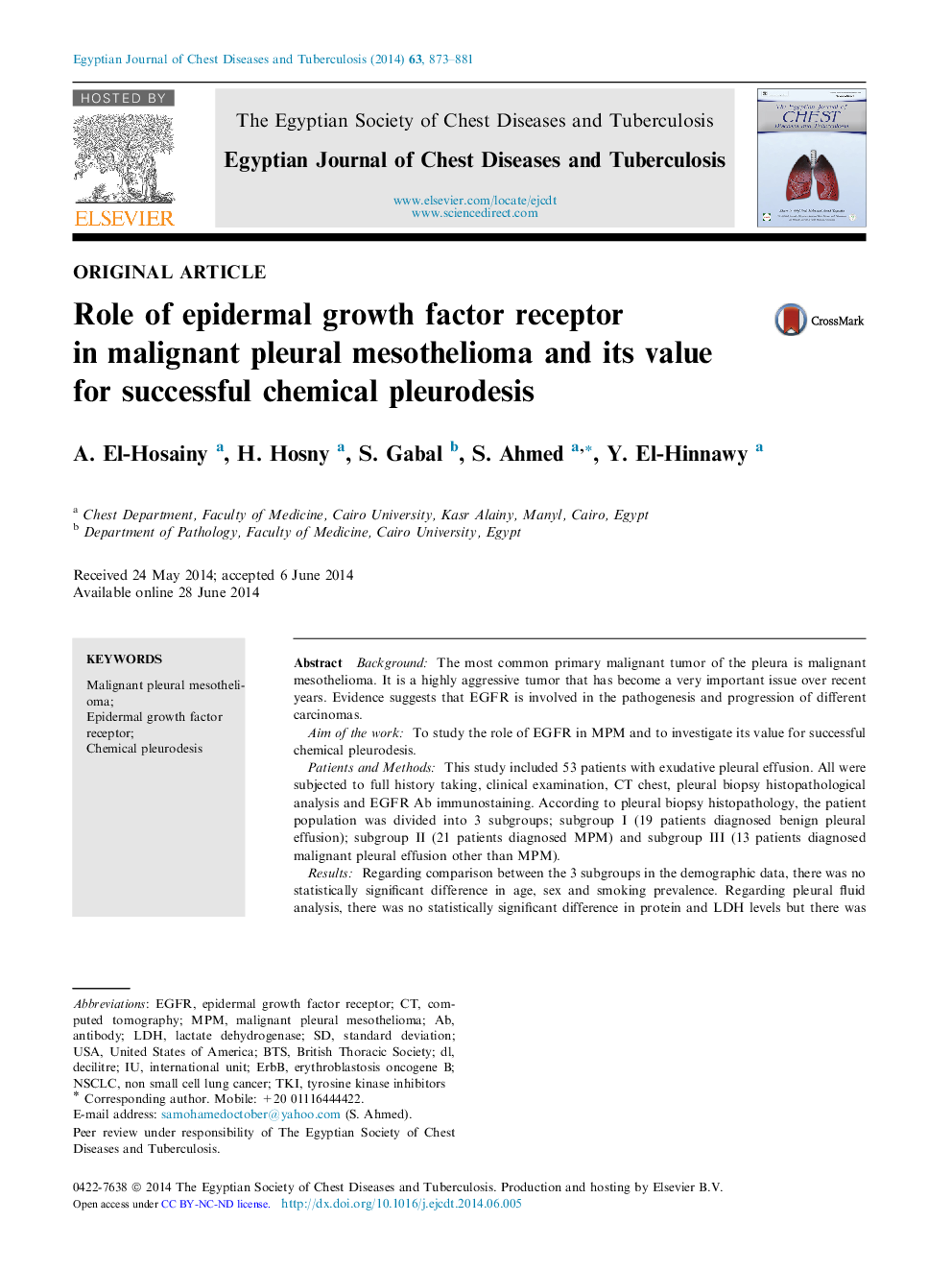| Article ID | Journal | Published Year | Pages | File Type |
|---|---|---|---|---|
| 3400225 | Egyptian Journal of Chest Diseases and Tuberculosis | 2014 | 9 Pages |
BackgroundThe most common primary malignant tumor of the pleura is malignant mesothelioma. It is a highly aggressive tumor that has become a very important issue over recent years. Evidence suggests that EGFR is involved in the pathogenesis and progression of different carcinomas.Aim of the workTo study the role of EGFR in MPM and to investigate its value for successful chemical pleurodesis.Patients and MethodsThis study included 53 patients with exudative pleural effusion. All were subjected to full history taking, clinical examination, CT chest, pleural biopsy histopathological analysis and EGFR Ab immunostaining. According to pleural biopsy histopathology, the patient population was divided into 3 subgroups; subgroup I (19 patients diagnosed benign pleural effusion); subgroup II (21 patients diagnosed MPM) and subgroup III (13 patients diagnosed malignant pleural effusion other than MPM).ResultsRegarding comparison between the 3 subgroups in the demographic data, there was no statistically significant difference in age, sex and smoking prevalence. Regarding pleural fluid analysis, there was no statistically significant difference in protein and LDH levels but there was statistical significance in sugar levels between subgroups I and II. There was statistical significance regarding predominant cell pattern during pleural fluid cytology. Also there was statistical significance regarding immunostaining for the detection of EGFR in pleural biopsy among study subgroups. However, there was no statistical significance regarding comparison between success of chemical pleurodesis and expression of EGFR among malignant subgroups of pleural effusion.ConclusionThere is evidence that EGFR is frequently overexpressed in MPM and therefore may be used as a potential therapeutic target.
